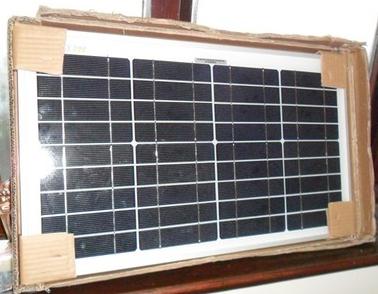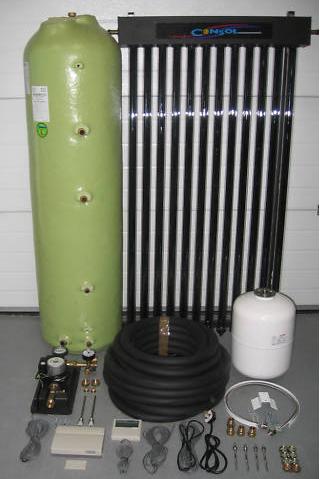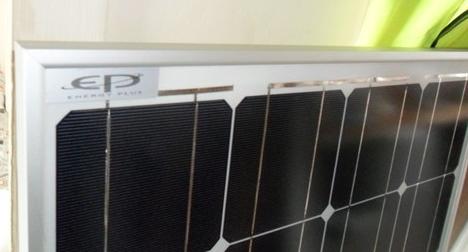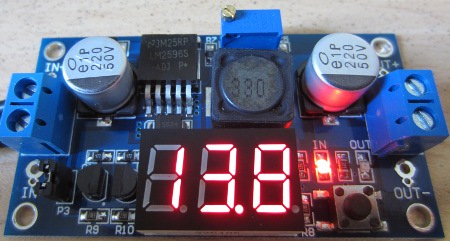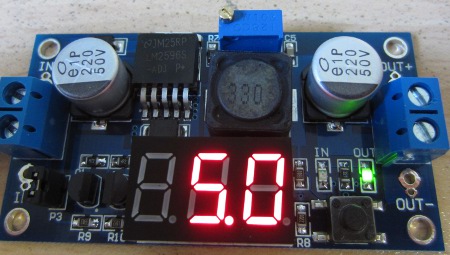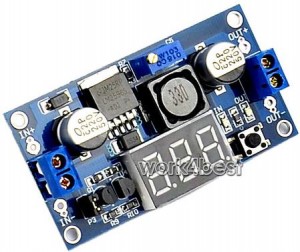We recently came across this handy little power supply module designed and built for use with prototyping breadboard (MB102 size) by YwRobot in China.
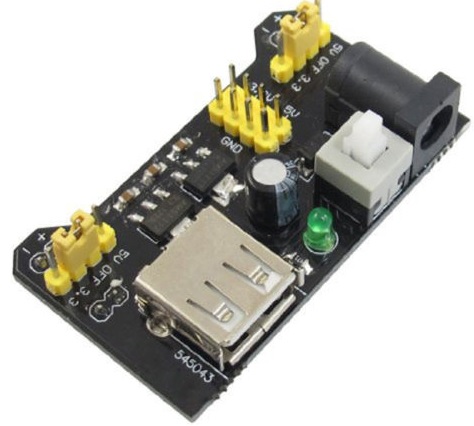 This is a very useful device for anyone getting started with electronics thanks to its low cost (approximately £1 delivered) and ease of set up and use.
This is a very useful device for anyone getting started with electronics thanks to its low cost (approximately £1 delivered) and ease of set up and use.
The module simply plugs into a breadboard and gives two pairs of rails which can be configured to give you 2x5V rails, one each of 5V and 3.3V, and you can also set one or both pairs of rails to 0V.
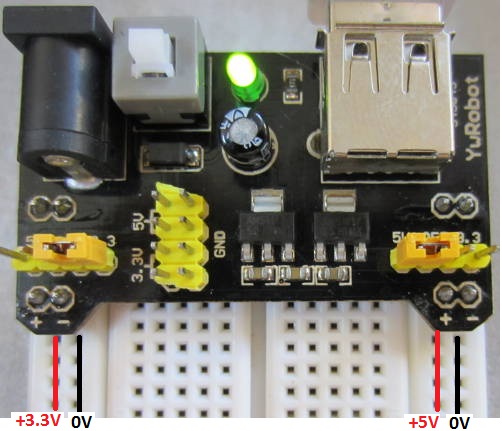 Pictured above we have used the small yellow jumpers to set one pair of rails to 3.3V/0V, and the second pair of rails to 5V/0V. The board is then ready to supply a few hundred mA at 3.3V and 5V to any project you may want to prototype/build on the breadboard.
Pictured above we have used the small yellow jumpers to set one pair of rails to 3.3V/0V, and the second pair of rails to 5V/0V. The board is then ready to supply a few hundred mA at 3.3V and 5V to any project you may want to prototype/build on the breadboard.
The module is powered via USB. Virtually everone now has a micro-USB charger at home for mobile phone and table charging etc, so it is surprising that they chose to use a full size USB-A connector. It would have been much better to go for a micro-USB connector.
The module has two low drop linear voltage regulators to supply the 3.3V and 5V outputs. When we tested this with a USB power supply outputting 5.46V, we measured 5.123V on the 5V rail, and 3.286V on the 3.3V rail.
If your USB power supply provides less than 5V (or more likely, you have less than 5V after losses in a long/cheap cable) the 5V rail will always be a few tenths of a Volt lower than the incoming voltage – therefore you cannot guarantee a reliable 5.0V output from this module when powered via USB. Similarly, it is best not to use this connected to a USB port on a PC as the voltage of PC USB ports can jump around a lot depending on what the PC is doing at any particular instant.
There is however a standard DC barrel jack for DC input power. Using a standard 6V DC power supply should give you a full stable 5V output from the module.
There is an on/off switch on the module, with a green LED to show the current status. This is useful not just because it saves you from having to unplug or switch off your USB power supply at the power point, but also because the capacitors in a power supply retain charge after you unplug the power supply and this charge will feed through the module into your electronics project until those capacitors have discharged. That could have unforeseen consequences as the voltage input to your circuit drops.
The quality of the components used and the build quality are as you would expect from a product offered at such a low price, but these modules are still an excellent first purchase for anyone interested in circuit prototyping.
These modules are available on their own, or together with a suitable breadboard and jumper links as a complete starter package. Click here for more information or to make a puchase of one of these power supply modules.

